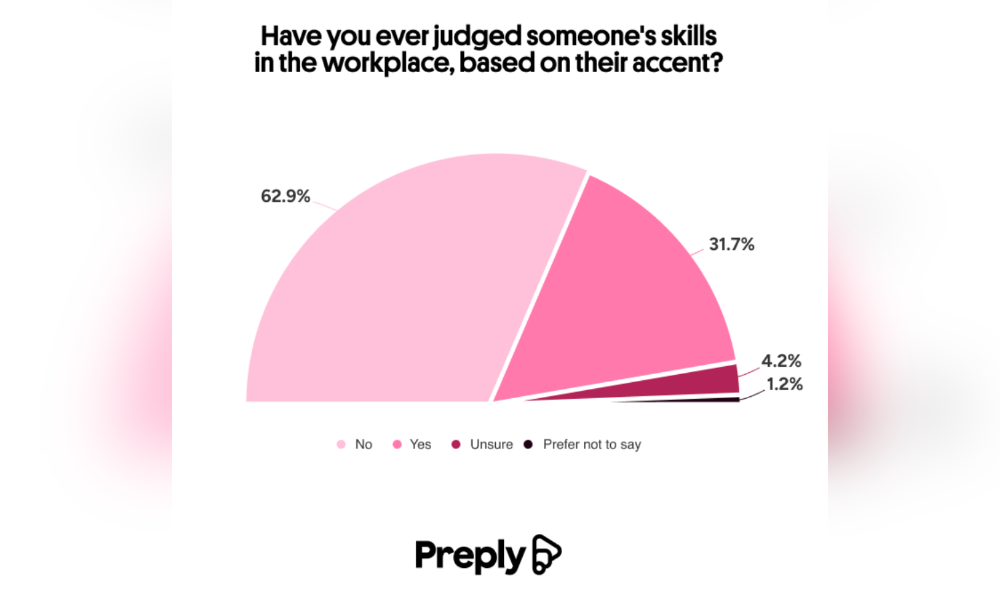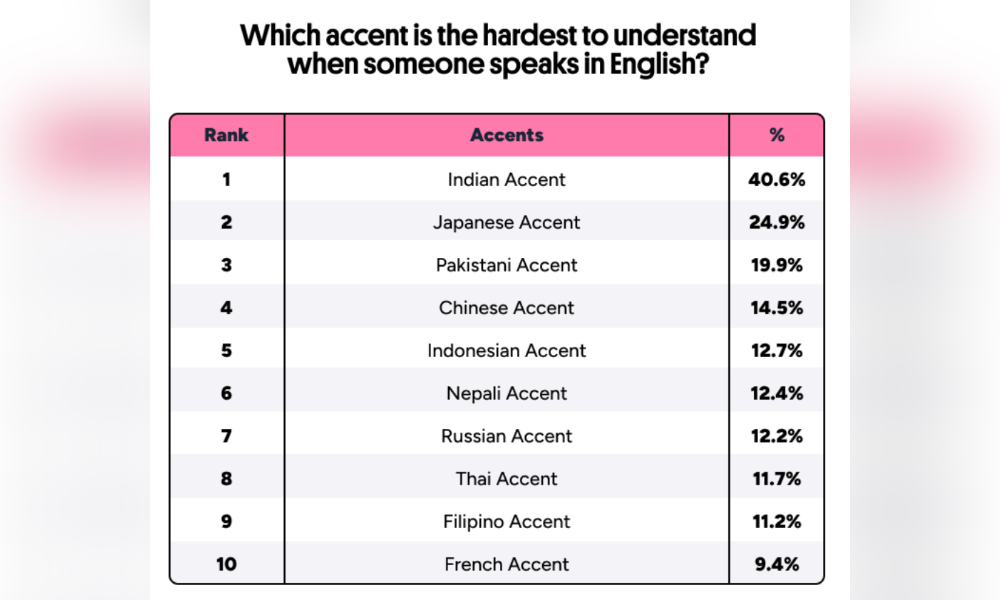
3 in 10 workers in Hong Kong judge co-workers' skills based on accents: survey

Three in 10 people living in Hong Kong have admitted to judging a co-worker based on their accent, according to a new survey from Preply.
The survey, which included 1,000 respondents, saw 31.7% of people saying they judged someone's skills in the workplace based on accents.
Younger employees are more likely to do this, according to the report, with 39.9% of them saying they form opinions about colleagues based on accent.
Another 30.7% of Millennials said they are guilty of this too, according to the survey.

Accents influencing how employees are seen at work is not new. A report from SAP in 2023 found that nearly one in five workers worldwide believe that they have not been selected for business trips due to their accents.
A study released in 2022 also revealed that how people speak also influences recruiters in deciding who to hire.
"When two equally qualified candidates differ in accent, the one who speaks with a standard accent is typically hired for the job, rather than the applicant with the non-standard accent," said Jessica Spence, a postdoctoral researcher at the University of Queensland and one of the authors of the 2022 study.
Spence previously said there were two broad arguments behind the situation.
"One is that non-standard accents might impede communication, and therefore, might make employees less effective in their job," she said. "The other is that people's non-standard accents might signal otherness, and then those candidates are devalued as a result."
Hong Kong is a multicultural hub with many talents from all over the world travelling there for work, exposing locals to different accents from overseas.
According to Preply, many accents there can be heard in workplaces, cafés, on the streets, and even at home. In fact, it found that individuals in Hong Kong think of British accents as the "sexiest" among foreign accents.
On the other hand, they believe the Indian accent (40.6%) is the hardest to understand, followed by Japanese (24.9%) and Pakistani (19.9%).

To ensure that accents do not get in the way of how people are viewed at work, especially in recruitment, Spence previously said HR leaders need more education on how judgments are influenced by the way people speak.